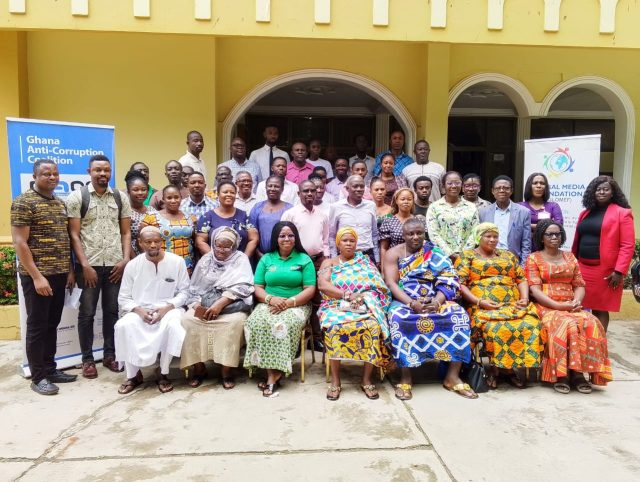The Monitoring and Evaluation Officer of the Ghana Anti-Corruption Coalition, Mr. Solomon K. Yankah, has urged Metropolitan, Municipal, and District Assemblies (MMDAs) across the country to adhere strictly to the provisions of the Local Government Act.
He emphasized the need for these assemblies to engage with their citizens at least four times a year, as mandated, to ensure that community projects align with the people’s needs and are effectively utilized.
On the final day of a two-day workshop on Anti-Corruption Efforts in Sunyani, Mr Yankah highlighted the alarming trend of projects being underutilized across various communities, attributing this to assemblies’ failure to involve residents in decision-making processes.
According to him, many projects have become ineffective because they need to reflect the actual needs of the communities they were intended to serve.
The workshop, which drew participants from Civil Society Organizations (CSOs), Community-Based Organizations (CBOs), women’s associations, youth groups, the media, and traditional leaders, was held under the theme “Strengthening Accountability, Rule of Law, and Institutional Responsiveness in Ghana.”
The event, which was supported by funding from the European Union, aimed to address the various forms of corruption, explore effective reporting mechanisms, and underscore the critical role of civic engagement in combating corruption.
Mr Yankah stressed that town hall meetings are vital to the assemblies’ activities, serving as platforms for receiving and disseminating information between the authorities and the public.
He noted that these meetings offer citizens the opportunity to voice their concerns and priorities, thereby ensuring that projects are community-driven and meet the people’s needs.
Furthermore, Mr. Yankah criticized many assemblies for lacking engagement through digital platforms.
He pointed out that most assemblies do not adequately use their websites and social media handles, leading to a significant disconnect between them and the general public.
He said this hampers transparency and reduces the effectiveness of communication between the assemblies and the citizens they serve.








![Stonebwoy holds star-studded party for ‘5th Dimension’ mega album [Video]](https://ghananewss.com/storage/2023/04/stonebwoy-partyy-100x75.jpeg)









